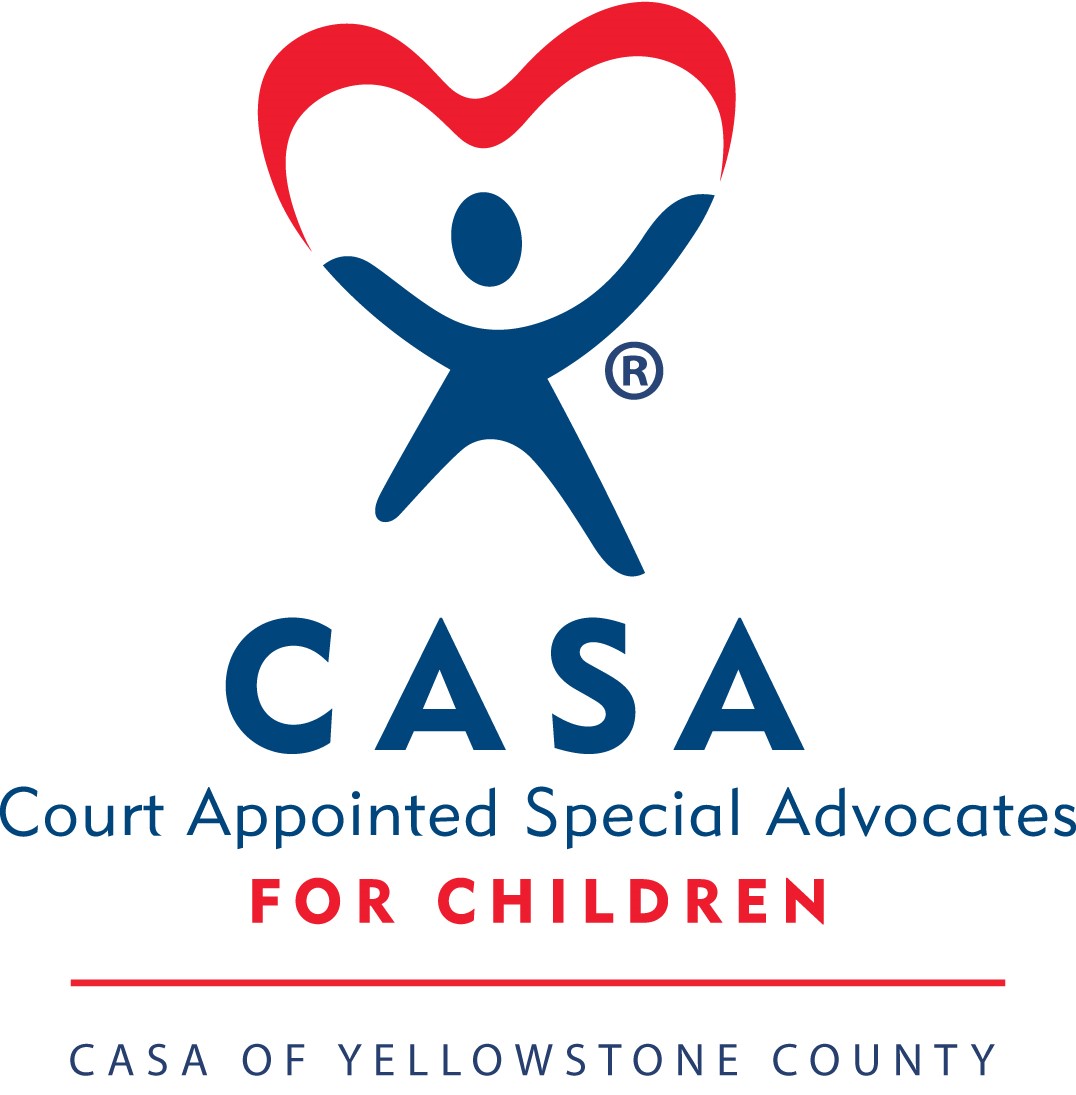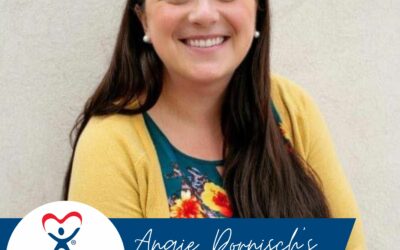You would think that a blog about building habits would be January fare, but here we are, on the tail end of a hot Montana summer, and I’m going to talk about habits. It seems like this summer has had almost all of the activity that would have happened in 2020 crammed together with usual 2021 summer things, combined handily with ridiculously hot temperatures and a pretty brutal fire season. Coming out of this busy season, many of us are careening into a new school year for our families, our work, and/or CASA kids. So it seems to me that now is just the time to talk about building some good habits. And since this is a CASA blog, I’ll be focusing on habits that will serve you in your CASA work. But really, these tips and tricks will be useful for anyone looking to build some solid habits into your daily life. So if you’re like me and you could use some creative ways to build good habits into your routine, read on!

Ola Dapo
A Matter of Learning, Not Willpower
First things first—what do we mean when we talk about habits? Psychologist Wendy Wood, author of Good Habits, Bad Habits: The Science of Making Positive Changes That Stick, says that “habits are a learning mechanism. All we have to do is repeat something and get rewarded for it, and we’re learning a habit.” So let’s just agree that convincing ourselves to enter contact logs is not what I’m talking about here. Most advocates I’ve worked with will agree that documentation of their work is important for lots of reasons: grant reporting requirements, communication with peer and program coordinators, remembering their work for writing reports later on, etc. But there have been plenty of advocates in my time at CASA of Yellowstone County who have told me and even listed as goals during their annual reviews that they wanted to “get better” at documenting their work in contact logs, or at contacting school personnel, or any other number of activities important for advocacy that can be broken down into small, manageable habits. So I’ve compiled a few ideas, through a little research and a little trial and error, that hopefully will help us take those good things from “I know I should get better” to “This is a habit now, and I can’t imagine going back to the way things were!”
Adding to Your Toolkit
Now that we’re all on the same page and you’re thinking of that one habit you’d like to develop, here are a few ideas on how to get from where you are to where you want to be.
- Start small. Public speaker Margaret Lukens grew tired of thinking about that daily flossing habit she knew would benefit her health. So she tried to start as small as she possibly could, by flossing one tooth per day. Now, that’s a laughable place to start—once you’ve got that floss wrapped around your fingers and you’re standing in front of the mirror, of course you’re going to floss more than just one tooth! But why should any of our other goals be any different? Are you staring at a string of emails that you know you should compile into contact logs and dreading the process? How about starting small, with just one contact log per day until you’re all caught up on your data entry, and then entering one log daily into the future?
Lukens discovered another highlight of starting so small—“the itch for completion.” She naturally drifted into flossing every tooth every day, even though she only held herself accountable to flossing one tooth. It’s human nature to want to finish something that we started. So go ahead and try entering one contact log a day. I’m willing to bet you will get into a groove, crank up some tunes and enter a few logs at one go!

Kindel Media
- Don’t add—mix! How often have you read a blog a lot like this, with great ideas on how to improve your life, and you walk away with the response, “Sounds great! Where can I find the time?!” This is not meant to be a blog like that! I wish I could wave a magic wand and add more time to all our days. But until I come across such magic, consider mixing your new, tiny habit into your current routine. Are there any pockets of your current daily or weekly routine when you could multi-task? I have found great success in mixing new habits into my current routine. For example, a couple years ago, I recognized the value of increasing my water consumption but just couldn’t build a habit around drinking more glasses of water. Instead, I decided to try taking a sip from my water bottle whenever I was stopped at a red light. I doubted it would do much for my actual water consumption, but I think it has paid off. By now, it has become a true habit to reach for my water bottle whenever I’m at a red light. Sometimes I have just enough time for a sip before the light changes, but sometimes I have enough time and thirst to enjoy a good few glugs. (And there’s that power of starting small, as well!)
Now, I know that drinking more water is a little simpler than advocacy. But I imagine you can identify a few minutes every day or week that you are not filling with work or—ahem—scrolling on your smartphone. Is it the line at the drive-through coffee place that, for some reason, is really long on Thursdays? Is it the few minutes you are idling the car while waiting to pick up your kids from school? Try adding a contact log to each of those times, and see how easy it is to build a good habit.
- Get a buddy. One of the beauties of CASA of Yellowstone County is that you are one of 164 active advocates (as of August 2021—and counting!), each with your own strengths and challenges—including building good habits. Accountability is a strong motivator! Can you imagine the satisfaction you could derive from texting a triumphant “DONE!” to a buddy after you submit a timely report? How about the desire to not be the guy who, when your buddy asks if you have entered your child contact log for the month, has to mumble “Not yet” yet again? A buddy can be your peer coordinator or simply another advocate you’ve met through pre-service or in-service training. It could even be a friend or family member who admires your work with CASA but can’t be an advocate themselves. Telling a loved one, “There’s a thing I’m supposed to do by the end of every month, and I could use some motivation to do the thing” maybe just the way to support you in your CASA work they have been waiting for.

Chevanon Photography
- Reward yourself. This is potentially the most fun way to build a new habit. Figure out a way to reward yourself for taking the action you want to build into your life, and then only reward yourself once it’s done. This works best if it’s an immediate reward. Dr. BJ Fogg, a behavior scientist at Stanford University, says the best way to hack our brains to continue with good habits is to celebrate the completion of a new habit during or immediately after we do the thing we’re trying to do. So dieting and planning for a big reward after we lose, say, 50 pounds isn’t as powerful as a celebration as simple as giving ourselves a fist pump after we make a healthy food choice. For those of us trying to build strong CASA habits, this could look like once a week, entering all our contact logs for the week and then immediately indulging in a favorite food, beverage or activity (and saving that reward for only times when we’ve just entered the week’s contact logs).
We can also celebrate while we’re executing that new habit. Wood tells of her struggle with building an exercise habit into her busy routine until she hit upon the idea of doing something that is a reward only while working out at the gym. For Wood, that reward is the competitive cooking shows and exciting audiobooks she enjoys consuming in her downtime. Once she decided that she would only watch the shows or listen to the books while working out, she found herself looking forward to her trips to the gym, if only to find out what happens next in her favorite shows and books! For your CASA work, if writing your monthly reports on time is that thing that you just can’t seem to build momentum on, how about heading to your favorite coffee shop and indulging in a special treat only while you’re writing your report? I’m willing to bet you will look forward to that report more than if you were just staring at your computer screen with no reward at hand.

Karolina Grabowska
Perhaps I should have said at the top that I’m no expert on building good habits, and having good habits is not a requirement for working with CASA of Yellowstone County. We all have different personalities, strengths and opportunities for improvement. The tasks that seem to suck the life out of some folks are what get me out of bed in the morning. Likewise, I am sometimes mystified by the delight some of my coworkers take in things that I would rather do never, ever, ever again. If anything, this blog is an invitation to join me as I continue to grow those habits that I know are good but have eluded me so far. We can build tiny, good habits together!
For more information on contact logs, reports, and more CASA lingo and how you can speak our language, too, contact the CASA of Yellowstone County development director at (406) 259-1233 or emily@yellowstonecasa.org






